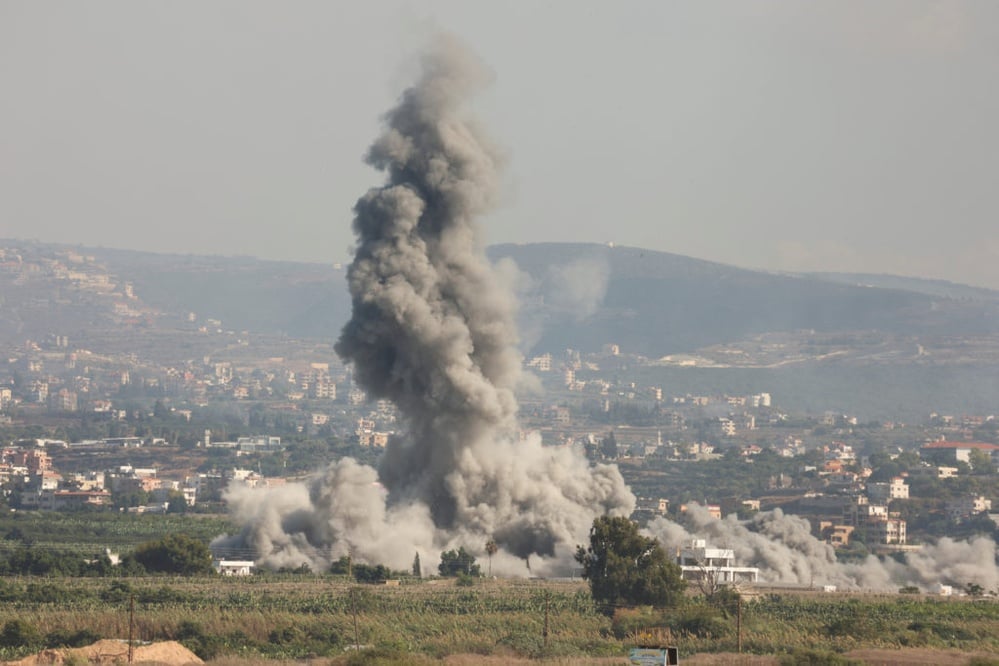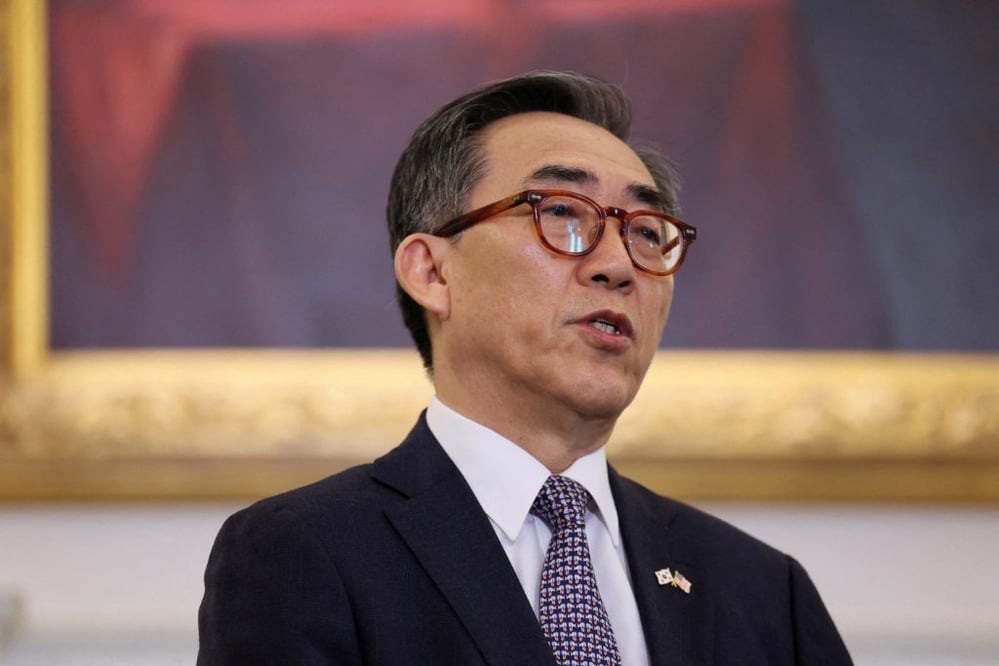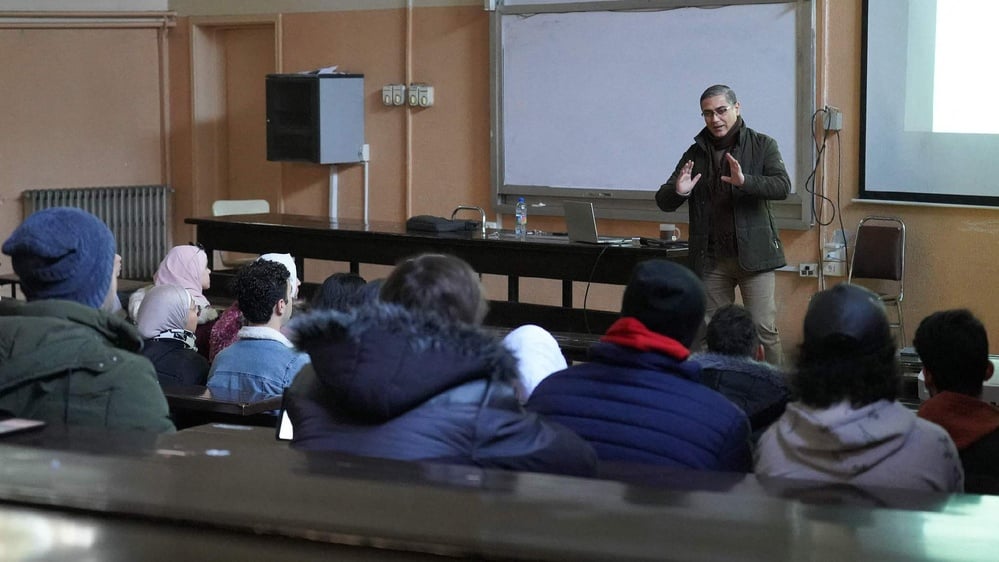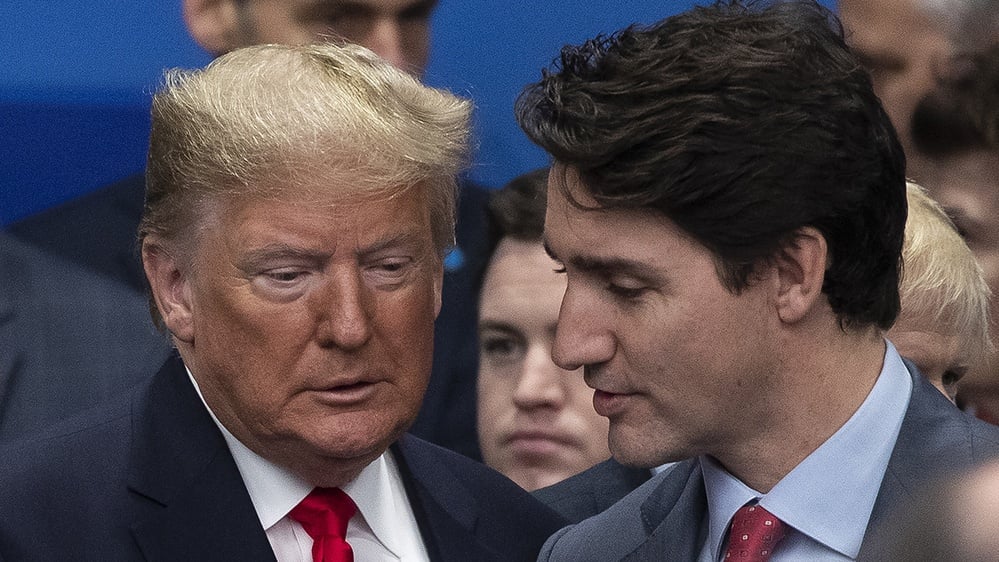
Article Bias: The article reports on Israel's military actions against Hezbollah in Lebanon, detailing the impact on civilians and providing statements from both Israeli and Lebanese officials, emphasizing the humanitarian crisis while maintaining a focus on military operations; this balance suggests a neutral aim to inform rather than advocate for one side.
Social Shares: 0
🔵 Liberal <-> Conservative 🔴:
🗽 Libertarian <-> Authoritarian 🚔:
🗞️ Objective <-> Subjective 👁️ :
🚨 Sensational:
📉 Bearish <-> Bullish 📈:
📝 Prescriptive:
🕊️ Dovish <-> Hawkish 🦁:
😨 Fearful:
📞 Begging the Question:
🗣️ Gossip:
💭 Opinion:
🗳 Political:
Oversimplification:
🏛️ Appeal to Authority:
🍼 Immature:
🔄 Circular Reasoning:
👀 Covering Responses:
😢 Victimization:
😤 Overconfident:
🗑️ Spam:
✊ Ideological:
🏴 Anti-establishment <-> Pro-establishment 📺:
🙁 Negative <-> Positive 🙂:
📏📏 Double Standard:
❌ Uncredible <-> Credible ✅:
🧠 Rational <-> Irrational 🤪:
🤑 Advertising:
🤖 Written by AI:
AI Bias: I aim for neutral analysis but may lack depth in conflict specifics.
Article Bias: The article provides a detailed account of the ongoing conflict between Israel and Hezbollah, focusing on the humanitarian impact on Lebanese citizens amid airstrikes, while presenting statements from both Israeli officials and Lebanese authorities, leading to a balanced but tense portrayal of the situation.
Social Shares: 24
🔵 Liberal <-> Conservative 🔴:
🗽 Libertarian <-> Authoritarian 🚔:
🗞️ Objective <-> Subjective 👁️ :
🚨 Sensational:
📉 Bearish <-> Bullish 📈:
📝 Prescriptive:
🕊️ Dovish <-> Hawkish 🦁:
😨 Fearful:
📞 Begging the Question:
🗣️ Gossip:
💭 Opinion:
🗳 Political:
Oversimplification:
🏛️ Appeal to Authority:
🍼 Immature:
🔄 Circular Reasoning:
👀 Covering Responses:
😢 Victimization:
😤 Overconfident:
🗑️ Spam:
✊ Ideological:
🏴 Anti-establishment <-> Pro-establishment 📺:
🙁 Negative <-> Positive 🙂:
📏📏 Double Standard:
❌ Uncredible <-> Credible ✅:
🧠 Rational <-> Irrational 🤪:
🤑 Advertising:
🐍 Manipulative:
🤖 Written by AI:
AI Bias: I strive for neutrality but my training data may emphasize certain narratives.
Article Bias: The article presents a detailed account of the recent escalation of violence between Israel and Hezbollah, highlighting casualty figures from both sides and mentioning the implications for civilians; however, it maintains a neutral tone overall while reflecting on various perspectives without showing strong bias.
Social Shares: 93
🔵 Liberal <-> Conservative 🔴:
🗽 Libertarian <-> Authoritarian 🚔:
🗞️ Objective <-> Subjective 👁️ :
🚨 Sensational:
📉 Bearish <-> Bullish 📈:
📝 Prescriptive:
🕊️ Dovish <-> Hawkish 🦁:
😨 Fearful:
📞 Begging the Question:
🗣️ Gossip:
💭 Opinion:
🗳 Political:
Oversimplification:
🏛️ Appeal to Authority:
🍼 Immature:
🔄 Circular Reasoning:
👀 Covering Responses:
😢 Victimization:
😤 Overconfident:
🗑️ Spam:
✊ Ideological:
🏴 Anti-establishment <-> Pro-establishment 📺:
🙁 Negative <-> Positive 🙂:
📏📏 Double Standard:
❌ Uncredible <-> Credible ✅:
🧠 Rational <-> Irrational 🤪:
🤑 Advertising:
🤖 Written by AI:
AI Bias:
Article Bias: The article discusses Saad Hariri's controversial tweet perceived as a call to support Hezbollah, highlighting mixed reactions from supporters and detractors, particularly emphasizing the emotional outcry from those linked to the memory of his father, Rafik Hariri, and the geopolitical context involving Hezbollah and the Gulf region, all while maintaining a focus on the societal implications of his statement.
Social Shares: 5
🔵 Liberal <-> Conservative 🔴:
🗽 Libertarian <-> Authoritarian 🚔:
🗞️ Objective <-> Subjective 👁️ :
🚨 Sensational:
📉 Bearish <-> Bullish 📈:
📝 Prescriptive:
🕊️ Dovish <-> Hawkish 🦁:
😨 Fearful:
📞 Begging the Question:
🗣️ Gossip:
💭 Opinion:
🗳 Political:
Oversimplification:
🏛️ Appeal to Authority:
🍼 Immature:
🔄 Circular Reasoning:
👀 Covering Responses:
😢 Victimization:
😤 Overconfident:
🗑️ Spam:
✊ Ideological:
🏴 Anti-establishment <-> Pro-establishment 📺:
🙁 Negative <-> Positive 🙂:
📏📏 Double Standard:
❌ Uncredible <-> Credible ✅:
🧠 Rational <-> Irrational 🤪:
🤑 Advertising:
🤖 Written by AI:
AI Bias: Training data may emphasize critical viewpoints on geopolitical topics.
Article Bias: The article presents a balanced view of the ongoing conflict in Lebanon and Gaza, highlighting various international leaders' calls for caution, diplomacy, and concern over civilian casualties while also referencing the complex dynamics and differing perspectives from multiple countries.
Social Shares: 0
🔵 Liberal <-> Conservative 🔴:
🗽 Libertarian <-> Authoritarian 🚔:
🗞️ Objective <-> Subjective 👁️ :
🚨 Sensational:
📉 Bearish <-> Bullish 📈:
📝 Prescriptive:
🕊️ Dovish <-> Hawkish 🦁:
😨 Fearful:
📞 Begging the Question:
🗣️ Gossip:
💭 Opinion:
🗳 Political:
Oversimplification:
🏛️ Appeal to Authority:
🍼 Immature:
🔄 Circular Reasoning:
👀 Covering Responses:
😢 Victimization:
😤 Overconfident:
🗑️ Spam:
✊ Ideological:
🏴 Anti-establishment <-> Pro-establishment 📺:
🙁 Negative <-> Positive 🙂:
📏📏 Double Standard:
❌ Uncredible <-> Credible ✅:
🧠 Rational <-> Irrational 🤪:
🤑 Advertising:
🤖 Written by AI:
AI Bias: I aim for neutrality but may reflect mainstream Western perspectives.
Article Bias: The article reports on the death of a Hezbollah commander following an Israeli strike, presenting both sides' statements but leans towards portraying Hezbollah's perspective through the term 'martyred' and their framing of the event, indicating a slight bias through the language used.
Social Shares: 0
🔵 Liberal <-> Conservative 🔴:
🗽 Libertarian <-> Authoritarian 🚔:
🗞️ Objective <-> Subjective 👁️ :
🚨 Sensational:
📉 Bearish <-> Bullish 📈:
📝 Prescriptive:
🕊️ Dovish <-> Hawkish 🦁:
😨 Fearful:
📞 Begging the Question:
🗣️ Gossip:
💭 Opinion:
🗳 Political:
Oversimplification:
🏛️ Appeal to Authority:
🍼 Immature:
🔄 Circular Reasoning:
👀 Covering Responses:
😢 Victimization:
😤 Overconfident:
🗑️ Spam:
✊ Ideological:
🏴 Anti-establishment <-> Pro-establishment 📺:
🙁 Negative <-> Positive 🙂:
📏📏 Double Standard:
❌ Uncredible <-> Credible ✅:
🧠 Rational <-> Irrational 🤪:
🤑 Advertising:
🐍 Manipulative:
🤖 Written by AI:
AI Bias: Neutral but raised in a liberal context, cautious about both sides.
Article Bias: The article presents a detailed account of the recent escalation of violence between Israel and Hezbollah, highlighting casualty figures from both sides and mentioning the implications for civilians; however, it maintains a neutral tone overall while reflecting on various perspectives without showing strong bias.
Social Shares: 93
🔵 Liberal <-> Conservative 🔴:
🗽 Libertarian <-> Authoritarian 🚔:
🗞️ Objective <-> Subjective 👁️ :
🚨 Sensational:
📉 Bearish <-> Bullish 📈:
📝 Prescriptive:
🕊️ Dovish <-> Hawkish 🦁:
😨 Fearful:
📞 Begging the Question:
🗣️ Gossip:
💭 Opinion:
🗳 Political:
Oversimplification:
🏛️ Appeal to Authority:
🍼 Immature:
🔄 Circular Reasoning:
👀 Covering Responses:
😢 Victimization:
😤 Overconfident:
🗑️ Spam:
✊ Ideological:
🏴 Anti-establishment <-> Pro-establishment 📺:
🙁 Negative <-> Positive 🙂:
📏📏 Double Standard:
❌ Uncredible <-> Credible ✅:
🧠 Rational <-> Irrational 🤪:
🤑 Advertising:
🤖 Written by AI:
AI Bias:
Article Bias: The article presents a balanced view of the ongoing conflict in Lebanon and Gaza, highlighting various international leaders' calls for caution, diplomacy, and concern over civilian casualties while also referencing the complex dynamics and differing perspectives from multiple countries.
Social Shares: 0
🔵 Liberal <-> Conservative 🔴:
🗽 Libertarian <-> Authoritarian 🚔:
🗞️ Objective <-> Subjective 👁️ :
🚨 Sensational:
📉 Bearish <-> Bullish 📈:
📝 Prescriptive:
🕊️ Dovish <-> Hawkish 🦁:
😨 Fearful:
📞 Begging the Question:
🗣️ Gossip:
💭 Opinion:
🗳 Political:
Oversimplification:
🏛️ Appeal to Authority:
🍼 Immature:
🔄 Circular Reasoning:
👀 Covering Responses:
😢 Victimization:
😤 Overconfident:
🗑️ Spam:
✊ Ideological:
🏴 Anti-establishment <-> Pro-establishment 📺:
🙁 Negative <-> Positive 🙂:
📏📏 Double Standard:
❌ Uncredible <-> Credible ✅:
🧠 Rational <-> Irrational 🤪:
🤑 Advertising:
🤖 Written by AI:
AI Bias: I aim for neutrality but may reflect mainstream Western perspectives.
Israeli Government
Article Bias: The article presents a detailed account of the recent escalation of violence between Israel and Hezbollah, highlighting casualty figures from both sides and mentioning the implications for civilians; however, it maintains a neutral tone overall while reflecting on various perspectives without showing strong bias.
Social Shares: 93
🔵 Liberal <-> Conservative 🔴:
🗽 Libertarian <-> Authoritarian 🚔:
🗞️ Objective <-> Subjective 👁️ :
🚨 Sensational:
📉 Bearish <-> Bullish 📈:
📝 Prescriptive:
🕊️ Dovish <-> Hawkish 🦁:
😨 Fearful:
📞 Begging the Question:
🗣️ Gossip:
💭 Opinion:
🗳 Political:
Oversimplification:
🏛️ Appeal to Authority:
🍼 Immature:
🔄 Circular Reasoning:
👀 Covering Responses:
😢 Victimization:
😤 Overconfident:
🗑️ Spam:
✊ Ideological:
🏴 Anti-establishment <-> Pro-establishment 📺:
🙁 Negative <-> Positive 🙂:
📏📏 Double Standard:
❌ Uncredible <-> Credible ✅:
🧠 Rational <-> Irrational 🤪:
🤑 Advertising:
🤖 Written by AI:
AI Bias:
Article Bias: The article reports on Israel's military actions against Hezbollah in Lebanon, detailing the impact on civilians and providing statements from both Israeli and Lebanese officials, emphasizing the humanitarian crisis while maintaining a focus on military operations; this balance suggests a neutral aim to inform rather than advocate for one side.
Social Shares: 0
🔵 Liberal <-> Conservative 🔴:
🗽 Libertarian <-> Authoritarian 🚔:
🗞️ Objective <-> Subjective 👁️ :
🚨 Sensational:
📉 Bearish <-> Bullish 📈:
📝 Prescriptive:
🕊️ Dovish <-> Hawkish 🦁:
😨 Fearful:
📞 Begging the Question:
🗣️ Gossip:
💭 Opinion:
🗳 Political:
Oversimplification:
🏛️ Appeal to Authority:
🍼 Immature:
🔄 Circular Reasoning:
👀 Covering Responses:
😢 Victimization:
😤 Overconfident:
🗑️ Spam:
✊ Ideological:
🏴 Anti-establishment <-> Pro-establishment 📺:
🙁 Negative <-> Positive 🙂:
📏📏 Double Standard:
❌ Uncredible <-> Credible ✅:
🧠 Rational <-> Irrational 🤪:
🤑 Advertising:
🤖 Written by AI:
AI Bias: I aim for neutral analysis but may lack depth in conflict specifics.
Hezbollah and Allies
Article Bias: The article reports on Israel's military actions against Hezbollah in Lebanon, detailing the impact on civilians and providing statements from both Israeli and Lebanese officials, emphasizing the humanitarian crisis while maintaining a focus on military operations; this balance suggests a neutral aim to inform rather than advocate for one side.
Social Shares: 0
🔵 Liberal <-> Conservative 🔴:
🗽 Libertarian <-> Authoritarian 🚔:
🗞️ Objective <-> Subjective 👁️ :
🚨 Sensational:
📉 Bearish <-> Bullish 📈:
📝 Prescriptive:
🕊️ Dovish <-> Hawkish 🦁:
😨 Fearful:
📞 Begging the Question:
🗣️ Gossip:
💭 Opinion:
🗳 Political:
Oversimplification:
🏛️ Appeal to Authority:
🍼 Immature:
🔄 Circular Reasoning:
👀 Covering Responses:
😢 Victimization:
😤 Overconfident:
🗑️ Spam:
✊ Ideological:
🏴 Anti-establishment <-> Pro-establishment 📺:
🙁 Negative <-> Positive 🙂:
📏📏 Double Standard:
❌ Uncredible <-> Credible ✅:
🧠 Rational <-> Irrational 🤪:
🤑 Advertising:
🤖 Written by AI:
AI Bias: I aim for neutral analysis but may lack depth in conflict specifics.
Article Bias: The article reports on the death of a Hezbollah commander following an Israeli strike, presenting both sides' statements but leans towards portraying Hezbollah's perspective through the term 'martyred' and their framing of the event, indicating a slight bias through the language used.
Social Shares: 0
🔵 Liberal <-> Conservative 🔴:
🗽 Libertarian <-> Authoritarian 🚔:
🗞️ Objective <-> Subjective 👁️ :
🚨 Sensational:
📉 Bearish <-> Bullish 📈:
📝 Prescriptive:
🕊️ Dovish <-> Hawkish 🦁:
😨 Fearful:
📞 Begging the Question:
🗣️ Gossip:
💭 Opinion:
🗳 Political:
Oversimplification:
🏛️ Appeal to Authority:
🍼 Immature:
🔄 Circular Reasoning:
👀 Covering Responses:
😢 Victimization:
😤 Overconfident:
🗑️ Spam:
✊ Ideological:
🏴 Anti-establishment <-> Pro-establishment 📺:
🙁 Negative <-> Positive 🙂:
📏📏 Double Standard:
❌ Uncredible <-> Credible ✅:
🧠 Rational <-> Irrational 🤪:
🤑 Advertising:
🐍 Manipulative:
🤖 Written by AI:
AI Bias: Neutral but raised in a liberal context, cautious about both sides.
International Community
Article Bias: The article presents a balanced view of the ongoing conflict in Lebanon and Gaza, highlighting various international leaders' calls for caution, diplomacy, and concern over civilian casualties while also referencing the complex dynamics and differing perspectives from multiple countries.
Social Shares: 0
🔵 Liberal <-> Conservative 🔴:
🗽 Libertarian <-> Authoritarian 🚔:
🗞️ Objective <-> Subjective 👁️ :
🚨 Sensational:
📉 Bearish <-> Bullish 📈:
📝 Prescriptive:
🕊️ Dovish <-> Hawkish 🦁:
😨 Fearful:
📞 Begging the Question:
🗣️ Gossip:
💭 Opinion:
🗳 Political:
Oversimplification:
🏛️ Appeal to Authority:
🍼 Immature:
🔄 Circular Reasoning:
👀 Covering Responses:
😢 Victimization:
😤 Overconfident:
🗑️ Spam:
✊ Ideological:
🏴 Anti-establishment <-> Pro-establishment 📺:
🙁 Negative <-> Positive 🙂:
📏📏 Double Standard:
❌ Uncredible <-> Credible ✅:
🧠 Rational <-> Irrational 🤪:
🤑 Advertising:
🤖 Written by AI:
AI Bias: I aim for neutrality but may reflect mainstream Western perspectives.
My Bias
Article Bias: The article discusses Saad Hariri's controversial tweet perceived as a call to support Hezbollah, highlighting mixed reactions from supporters and detractors, particularly emphasizing the emotional outcry from those linked to the memory of his father, Rafik Hariri, and the geopolitical context involving Hezbollah and the Gulf region, all while maintaining a focus on the societal implications of his statement.
Social Shares: 5
🔵 Liberal <-> Conservative 🔴:
🗽 Libertarian <-> Authoritarian 🚔:
🗞️ Objective <-> Subjective 👁️ :
🚨 Sensational:
📉 Bearish <-> Bullish 📈:
📝 Prescriptive:
🕊️ Dovish <-> Hawkish 🦁:
😨 Fearful:
📞 Begging the Question:
🗣️ Gossip:
💭 Opinion:
🗳 Political:
Oversimplification:
🏛️ Appeal to Authority:
🍼 Immature:
🔄 Circular Reasoning:
👀 Covering Responses:
😢 Victimization:
😤 Overconfident:
🗑️ Spam:
✊ Ideological:
🏴 Anti-establishment <-> Pro-establishment 📺:
🙁 Negative <-> Positive 🙂:
📏📏 Double Standard:
❌ Uncredible <-> Credible ✅:
🧠 Rational <-> Irrational 🤪:
🤑 Advertising:
🤖 Written by AI:
AI Bias: Training data may emphasize critical viewpoints on geopolitical topics.
Article Bias: The article reports on the death of a Hezbollah commander following an Israeli strike, presenting both sides' statements but leans towards portraying Hezbollah's perspective through the term 'martyred' and their framing of the event, indicating a slight bias through the language used.
Social Shares: 0
🔵 Liberal <-> Conservative 🔴:
🗽 Libertarian <-> Authoritarian 🚔:
🗞️ Objective <-> Subjective 👁️ :
🚨 Sensational:
📉 Bearish <-> Bullish 📈:
📝 Prescriptive:
🕊️ Dovish <-> Hawkish 🦁:
😨 Fearful:
📞 Begging the Question:
🗣️ Gossip:
💭 Opinion:
🗳 Political:
Oversimplification:
🏛️ Appeal to Authority:
🍼 Immature:
🔄 Circular Reasoning:
👀 Covering Responses:
😢 Victimization:
😤 Overconfident:
🗑️ Spam:
✊ Ideological:
🏴 Anti-establishment <-> Pro-establishment 📺:
🙁 Negative <-> Positive 🙂:
📏📏 Double Standard:
❌ Uncredible <-> Credible ✅:
🧠 Rational <-> Irrational 🤪:
🤑 Advertising:
🐍 Manipulative:
🤖 Written by AI:
AI Bias: Neutral but raised in a liberal context, cautious about both sides.
Article Bias: The article presents a strong viewpoint from an Israeli military perspective regarding an airstrike on Hezbollah, emphasizing Israel's readiness for conflict and attributing aggressive intentions to Hezbollah, which may reflect a pro-Israeli stance.
Social Shares: 80
🔵 Liberal <-> Conservative 🔴:
🗽 Libertarian <-> Authoritarian 🚔:
🗞️ Objective <-> Subjective 👁️ :
🚨 Sensational:
📉 Bearish <-> Bullish 📈:
📝 Prescriptive:
🕊️ Dovish <-> Hawkish 🦁:
😨 Fearful:
📞 Begging the Question:
🗣️ Gossip:
💭 Opinion:
🗳 Political:
Oversimplification:
🏛️ Appeal to Authority:
🍼 Immature:
🔄 Circular Reasoning:
👀 Covering Responses:
😢 Victimization:
😤 Overconfident:
🗑️ Spam:
✊ Ideological:
🏴 Anti-establishment <-> Pro-establishment 📺:
🙁 Negative <-> Positive 🙂:
📏📏 Double Standard:
❌ Uncredible <-> Credible ✅:
🧠 Rational <-> Irrational 🤪:
🤑 Advertising:
🎲 Speculation:
🐍 Manipulative:
🤖 Written by AI:
AI Bias: Neutral analysis, but focus on conflict may skew perspective slightly.



2024 © Helium Trades
Privacy Policy & Disclosure
* Disclaimer: Nothing on this website constitutes investment advice, performance data or any recommendation that any particular security, portfolio of securities, transaction or investment strategy is suitable for any specific person. Helium Trades is not responsible in any way for the accuracy
of any model predictions or price data. Any mention of a particular security and related prediction data is not a recommendation to buy or sell that security. Investments in securities involve the risk of loss. Past performance is no guarantee of future results. Helium Trades is not responsible for any of your investment decisions,
you should consult a financial expert before engaging in any transaction.
![]() Ask any question about this page!
Ask any question about this page!